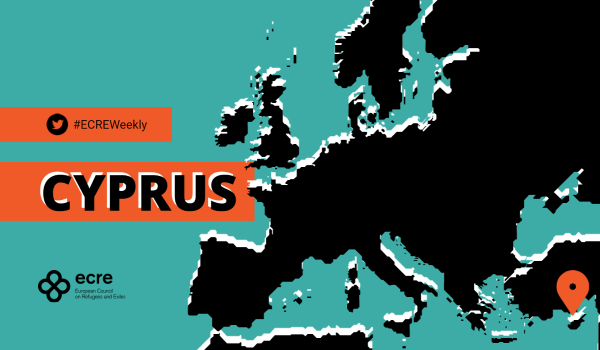The Cypriot children’s rights commissioner is appalled by unhygienic and miserable conditions in the Pournara reception camp. 30 unaccompanied children recently staged a protest outside the centre. President Nicos Anastasiades promised “more humane” conditions but blamed the high number of arrivals for “deficiencies”.
On 9 March the children’s rights commissioner, Despo Michaelidou, reiterated the responsibility of the state under human rights law to ensure food, protection as well as acceptable health and hygiene conditions for children at the Pournara reception centre. The facility is located in Kokkinotrimithia, on the outskirts of capital of Nicosia. According to the commissioner, the children are left with one bottle of water per child, that “normally has to last the entire day”. Further, she described the hygienic conditions as “appalling,” and noted that “around 15 people sleep in each room, usually sharing beds, resulting in children often ending up sleeping on the floor. On top of that, the roughly 300 children housed at the centre are forced to share two toilets and a single shower room”. The statements follow a protest staged outside the centre by 30 unaccompanied minors. Despo Michaelidou stated that “Having children on the street leaves them exposed to many risks, which is a violation of their rights”. The rights group KISA urged intervention by authorities and the UN Refugee Agency (UNHCR) spoke out on behalf of the children “protesting under the rain in the cold”. UNHCR noted that: The church offered them to stay the night in the church but the welfare does not allow them to move in the church”.
Following a brief visit to the camp on 14 March, president Anastasiades promised “more humane” conditions but also pointed out that “deficiencies” are the result of arrivals that will “dealt with accordingly”. According to Anastasiades nearly five per cent of the population are asylum seekers. Cyprus has the highest number of asylum applications per capita of the 27 EU member states. Further, on the same day the interior minister Nicos Nouris announced that 92 of the 356 children at Pournara have been relocated to hotels and that alternative accommodation for an additional 150 children is being identified. According to Nouris, the overcrowding at Pournara will be alleviated once transfers to a recently constructed reception centre south of Nicosia begins. Currently Cyprus has capacity for 160 to 170 children, but 769 minors remain in various facilities on the island.
Deputy Minister for Social Welfare, Anastasia Anthousi, pointed to delays and difficulties in the age determination process of applicants claiming to be minors, when she addressed MPs during a House human rights committee. Stating that medical age tests revealed that 60 per cent of the 64 people claiming to be underage in 2021 were in fact adults, the deputy minister warned this posed a risk sexual exploitation of children. The ministry is in the process of identifying legal avenues to enforce examination of people claiming to be minors but suspected of being adults. “We are in consultation with the Legal Service to see how this can be done,” Anthousi said, adding that Cyprus has required an overview of the best practices from the European Commission.
The EU has pledged to help the Cypriot government cope with its migration issues. Recently, a MoU was signed between the European Commission and the island nation which aimed at enhancing reception capacity, ensuring timely and effective asylum procedures, addressing integration challenges and improving efficiency on returns. On 16 March, the European Parliament Committee e on Civil Liberties, Justice and Home Affairs (LIBE) held an exchange of views on the exceptional migratory situation.
For further information:
- ECRE, Cyprus: MoU Signed with European Commission While Government Casts Blame on Asylum Seekers, February 2022
- ECRE, Cyprus: Government Blames Turkey for High Number of Arrivals and Requests Frontex Patrols – Leggeri Promises Support and Facilitation of Returns, February 2022
This article appeared in the ECRE Weekly Bulletin. You can subscribe to the Weekly Bulletin here.

